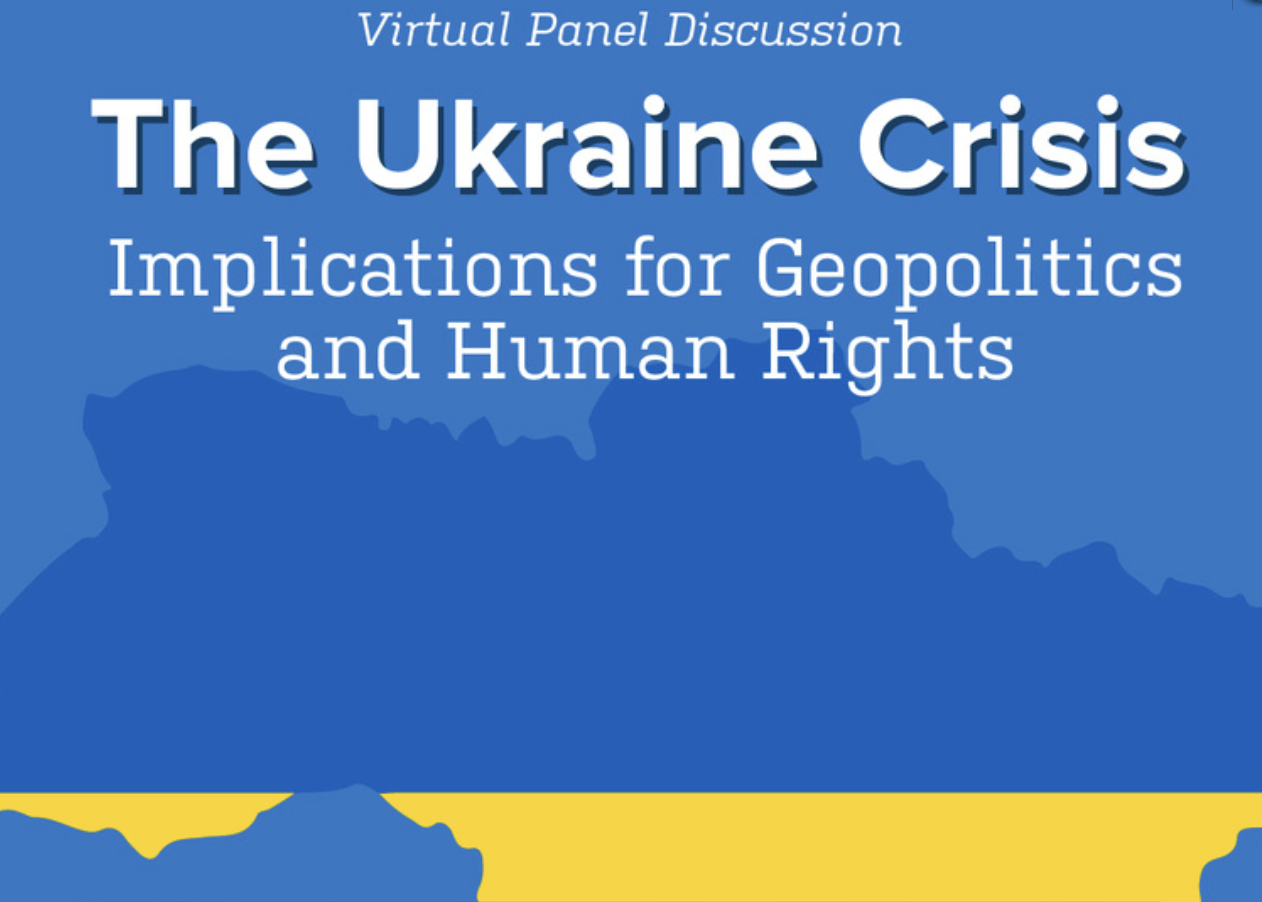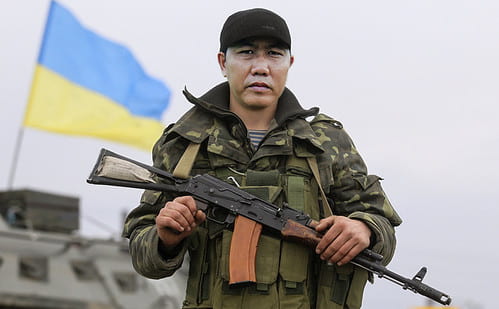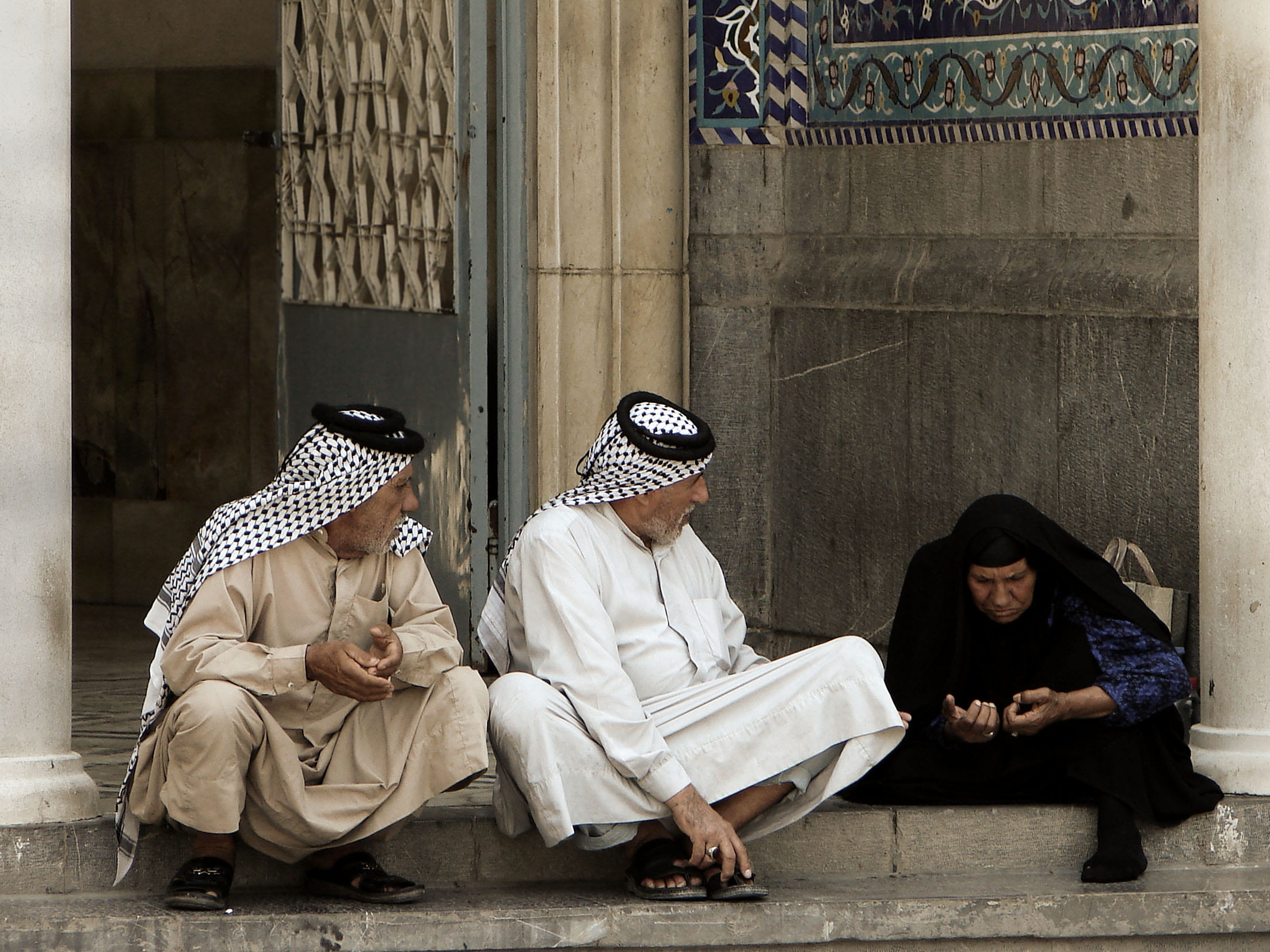War continues to embroil Ukraine as Russian forces advance through the country. Putin’s assurances of only attacking military sites are belied by the mounting civilian casualties in Ukraine. Many Ukrainian individuals have picked up arms for the first time, putting up a valiant stand against the aggressors, while other are seeking safety in neighboring countries. The sanctions levied on Russia and their leadership are likely to have an impact on the country, although they have not yet significantly influenced the current Russian offense. There is, however, a constraint in terms of resources for the Russian troops. For more information regarding this issue, visit Dr. Tina Reuter’s blog post for the Institute for Human Right.
In light of these developments, the UAB Institute for Human Rights (IHR) and the UAB Department of Political Science and Public Administration (PSPA) held an expert panel on March 3rd. The conversation was moderated by Dr. Robert Blanton, the Chair of the Department of PSPA at UAB. The panel was comprised of Dr.Tina Kempin Reuter, Director of the UAB IHR and associate professor in the Department of PSPA as well as the Anthropology Department; Dr.George Liber, retired professor from the History Department at UAB; Scotty Colson, coordinator at the Jimmie Hale Mission and Alabama’s Honorary Consul for Ukraine; Dr. Renato Corbetta, associate professor in the Department of PSPA and Director of the UAB International Studies Program; and Dr. Peter Verbeek, associate professor in the Department of Anthropology and Director of the graduate program in Anthropology of Peace and Human Rights. Panelists discussed the past, present, and future of the Ukraine crisis and consideration of the implications for the people of Ukraine, international relations, and world peace.

Historical Context
Dr. Liber began the conversation by providing a historical background for the current crisis. Ukraine has been an independent country since the collapse of the Soviet Union in the early 1990s, and a majority of its people have supported a pro-democratic position including, but not limited to, free elections. Putin, in contrast, leads Russia as an authoritarian dictator, controlling the parliament, courts, and state media. Civil liberties have taken a toll under his leadership as the government goes as far as to reshape public opinion through its influence. Putin has always struggled to recognized Ukraine as an independent state and aims to restore Russia to its former power. Two significant events have led to the recent escalation. The first was the removal of the pro-Russian government from office in 2014, and the subsequent appointment of a more democratic leadership. In response, Russia annexed Crimea with the help of pro-Russian annexationists in Eastern Europe. The conflict between the Ukrainian military and Russian-backed separatists created great turmoil at the time. The second event that prompted the recent attack by Russia, according to Dr.Liber, was the withdrawal of US troops from Afghanistan, which signaled to Putin that the US may be hesitant to engage their military forces at the time of conflict.
The Situation on the Ground
Scotty Colson followed this historical summary with a description of the current situation in Ukraine. He recounted his interactions with former participants in the Open World Program, which is a government funded program that offers young Ukrainian leaders the opportunity to travel to the US and exchange ideas on key global issues with their counterparts. Mr.Colson relays the experiences of participants of this program who visited Birmingham and who are currently in the center of the war in Ukraine. One individual, a lawyer who advocates for the democratization of Ukraine, took up an AK47 despite his lack of experience handling firearms. He now mans a barricade in Ukraine after his regular work hours. Another individual that Colson interacted with was an entrepreneur who created programs to help people receive first aid. He is currently one of the leaders in providing emergency care for war torn areas. Another individual stands guard with a machine gun outside an airport. Colson also mentioned that advocates from other countries are being removed from social media platforms in Russia. He emphasized the connection we have with these individuals, and others, in Ukraine, as they were inspired by Birmingham’s history to lead civil reform in their own country.
Humanitarian Consequences
Dr. Reuter detailed the human rights implications of the conflict. Undoubtedly, there has been an increase in human rights violations, including the right to life and civilian integrity. The air strikes and heavy artillery are in direct breach of international law, prompting an investigation by the International Criminal Court. The number of casualties is uncertain, with the. However, since the UN Office of the High Commissions for Human Rights only counts deaths that they can verify, the numbers reported by them are likely to be an underrepresentation. Moreover, the most concerning development in Dr. Reuter’s opinion is Putin’s remarks during his conversation with president Macron, in which he showed no sign of relenting. At the time of the panel discussion, approximately 160,000 people were displaced, and this number was expected to climb to several millions. Some individuals had to wait for up to 60 hours in in freezing weather before being allowed to enter Poland.
Despite this, the overwhelming attitude towards Ukrainian refugees has been one of warmth and acceptance: the European Union (EU) is set to grant Ukrainian refugees with permission to live and work in the EU, while receiving education and healthcare, for a year. While Dr. Reuter appreciates this response, she points to the problematic contrast in attitudes towards the refugees from Ukraine as opposed to refugees from the Middle East and Africa, who have not been received as positively. Another significant challenge is the delivery of humanitarian aid, particularly since the war conditions have made it more unsafe for aid workers. At the time of the panel discussion, Russia tentatively agreed to arrange for a humanitarian corridor to evacuate civilians and deliver aid safely. However, since then, there have been reports of air strikes impacting these corridors and other civilian buildings as well, including a maternity ward.
Interventions by the International Community
Dr. Corbetta discussed the possible options for the international community to intervene in the situation at hand. The reason for the hesitancy of western powers in deploying troops is the risk of escalation into nuclear warfare. The escalation may not necessarily be due to a strategic attack but even just an accident by the troops stationed in the area. This is known as the stability paradox – conventional forces cannot be used because it might lead to the use of nuclear weapons, but the potential disastrous consequences of nuclear weapons will encourage the use of conventional warfare instead. Dr. Corbetta believes Putin is attempting to make it seem as if Russia is ready to use nuclear weapons in order to prevent the stationing of conventional troops.
Sanctions are one of the other ways the west will be able to influence the situation in Ukraine. Although the sanctions imposed thus far have been strong, they take act slowly. It is important that the sanctions are increased progressively rather than levying all of the most severe sanctions at once in order to maintain leverage. Hence, the gradual nature of the impact of sanctions gives Putin time to cause further damage in Ukraine. China plays a key role in the success of sanctions as well. Dr. Corbetta says that Putin will count on China to become their key economic partner to reduce the burden of the sanctions. China at the time had not chosen sides, waiting to see the reaction from the West and the precedent that will be set for Taiwan. Another intervention is to have negotiations between Ukraine and Russia with the United Nations present to mediate. This may be particularly likely if the Russian advance is not very successful in the future, although Putin has not been keen on negotiations until now. Mediation can take a more direct form as well, with a neutral group placing troops in between the two countries to prevent conflict.

The Path to Peace
Dr. Verbeek was asked to speak about the prospects of peace and how to achieve it. He began by distinguishing the two components to peace. The first is negative peace, or the cessation of violence, while the second is positive peace, which goes beyond that to tackle social injustice that prevent the attainment of peace. Dr. Verbeek also cautioned against being quick to take sides and encouraged everyone to consider the human experience on both sides in addition to the actions of the leaders. He gave the example of a Russian soldier’s text message exchange with his parents, who wanted to send their son a package only to find out he was deployed in Ukraine. The soldier, distraught, told his parents that they were promised a warm welcome from the Ukrainians. Similarly, on the other side, it is important to ensure that refugees who are under assault are able to safely exit the country. Moreover, the UN Convention on the Rights of the Child, which Russia has ratified, should be invoked to reduce the suffering of children stuck in the middle of the war. Dr. Verbeek also believes it is time to reassess the necessity of NATO, as it was devised to combat the Soviet Union, which no longer exists. While some say it is needed for the situation in Iraq, it is worth considering if the way we have been doing things is the best way to continue moving forward.
With regards to sanctions, Dr. Verbeek mentioned that punishment is not very effective according to behavioral science. He believes more emphasis should be placed on negotiations, with the UN or western countries present to aid in coming to a compromise. There are currently talks underway in Belarus, and it is crucial that these continue. Thinking creatively and differently than in the past is necessary to find a solution to the crisis. As Dr. Verbeek put it, “it is very important for people to talk. As long as the guns are going, and people are not talking, peace will be far away.”
Other Key Points
When asked what Putin’s overarching goal may be, Dr. Corbetta mentioned that it would be difficult to say with certainty. His intention may be to restore Russia to its status in the past when the Soviet Union still existed. He also may not want Russia to take a back seat in the increasingly important US-China relationship. Colson added that Putin’s may be more financially motivated, aiming to take control of resources in the north and simultaneously undermining and dividing the Western powers. An example of such a resource is oil, which Putin may be able to leverage to exert influence over countries dependent on oil. In terms of the implications for international relations, Dr. Verbeek highlights the importance of not only addressing the current loss of lives but also paving the path for global cooperation in the future, a necessary prerequisite to addressing existential crises such as global warming.
When asked about the United Nations Security Council’s role in diffusing the conflict, Dr. Reuter answered by first stating that the UN General Assembly vote condemning Russia’s actions was a positive sign. However, the influence of the Security Council is limited by Russia’s veto power. The Security Council, having been established after WWII, may not accurately represent the distribution of power in today’s world. Dr. Verbeek believes that it is time to reconceptualize the way in which the UN operates. In addition to this, Dr. Liber brought up the point that the outcome of the Ukraine crisis will have implications for nuclear disarmament as well. After being pressured by the US and other world powers, Ukraine agreed to give up its nuclear arsenal towards the end of the twentieth century and sought a guarantee for its national sovereignty in return. In light of the invasion of Ukraine, other countries may hesitate to proceed with nuclear disarmament out of fear for their national security.
Is there reason for hope? The answer from the panelists is a resounding yes. Dr. Reuter believes that the dissenting voices in Russia that are creating pressure from within is indeed a case for hope. In addition to that, the possibility for a corridor to supply humanitarian aid is a positive development. There are numerous organizations that are providing humanitarian relief to Ukrainians, and a detailed list can be found in an IHR Blog post written by Dr.Reuter. Dr. Corbetta sees the cohesiveness of the western countries as a reason for hope, particularly if this can be translated to other global issues. Moreover, the invasion of Ukraine is not rolling out as smoothly as Putin would have liked, which may dampen further efforts. This conflict has also made people realize that environmental issues overlap with security concerns – becoming less dependent on fossil fuels will reduce the influence that Russia has over western countries in case such a conflict arises in the future. Dr. Verbeek also finds It reassuring that many UN members stand in agreement that Russia’s actions are wrong. He believes the UN can be reformed to more fairly distribute power and create safeguards to prevent such a crisis, and all its disastrous consequences, from occurring again. For more thoughts from Dr. Verbeek on the conclusion of this war and a more peaceful future, visit his IHR blog post.



